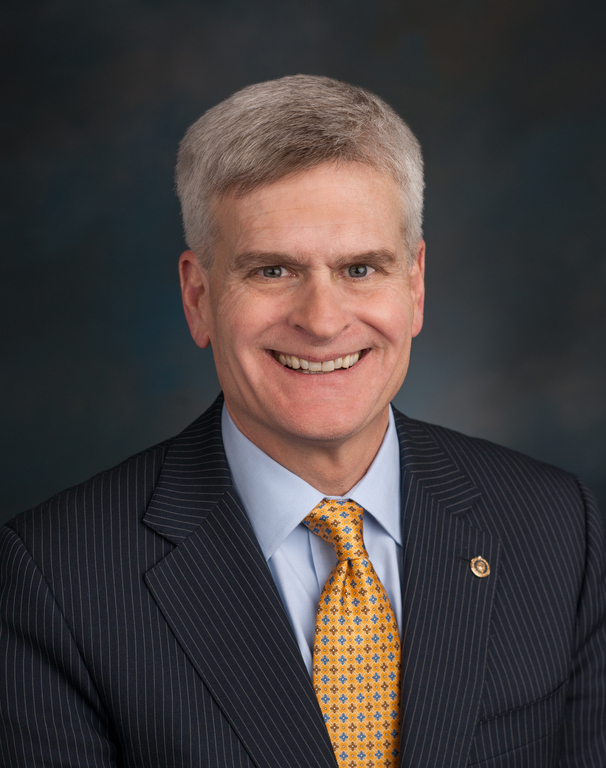Posts tagged Fifth Circuit Court of Appeals
Off the Rails? Union Asks Supreme Court to Rein in Fifth Circuit
November 13, 2025 // The Fifth Circuit’s approach breaks sharply from multiple other circuits (Second, Third, Fourth, Sixth, Tenth, and D.C.), which have either held or strongly implied—consistent with Supreme Court precedent, according to the OPEIU—that a petitioner must show actual harm before courts will halt agency actions. The Fifth Circuit’s stance invites immediate injunctions in response to routine NLRB cases, which destabilizes the Board’s ability to function across Texas, Louisiana, and Mississippi—even as the D.C. Circuit separately evaluates the constitutionality of those same protections.

Fifth Circuit Denies Enforcement of NLRB’s Enhanced Remedies, Widening Circuit Split
November 5, 2025 // The Fifth Circuit now joins the Third Circuit in holding that the Board exceeded its authority under the NLRA by awarding Thryv remedies. The Third Circuit also held that Thryv remedies exceeded the authority granted to the Board under Section 10(c), as we reported here. In contrast, the Ninth Circuit upheld Thryv remedies,

Dollar store workers fight to improve jobs, even without a union
October 17, 2025 // In 2022, Williams joined an organization that seemed, to him, like his best shot: Step Up Louisiana. Like several successful campaigns before it, Step Up organizes workers to improve their jobs, but stops short of calling for a union under the National Labor Relations Board. The approach, sometimes referred to as “premajority unionism,” is a natural fit for places like the South, with histories of public hostility to unions. Today, suggest experts, it may also be workers’ best bet for building power amid the hostility of the Trump administration.
Mackinac Center Joins Amicus Brief Challenging Private Delegation of Government Regulatory Authority
February 13, 2025 // The amicus brief, filed alongside the Institute for the American Worker and the Pelican Institute for Public Policy, argues that delegating regulatory power to private industry groups violates the nondelegation doctrine and due process protections. The case before the Supreme Court challenges the FCC’s reliance on the Universal Service Administrative Company, a private, industry-run entity, to set and administer fees collected from telecommunications companies. These fees are ultimately passed on to consumers. The Fifth Circuit Court of Appeals found this structure unconstitutional, ruling that it improperly allows private entities to exercise government power.

US federal workers hope Republicans will curb Trump, Musk firings
November 22, 2024 // The U.S. government is the country's largest employer. While workers are concentrated in Washington, D.C., and nearby Maryland and northern Virginia, some of the greatest concentrations of federal workers can be found in areas like southern Oklahoma and northern Alabama, which are represented by Republicans in the House. The biggest federal employees' union, the American Federation of Government Employees, which represents 750,000 federal workers, is also looking to Congress, said Jacqueline Simon, the AFGE's policy director.
Teamsters Test the Bounds of the NLRB’s Cemex Decision, Seeking to Unionize Amazon Workers Without an Election
November 13, 2024 // Teamsters allege that Amazon’s failure to voluntarily recognize the union or timely file an RM Petition warrants the issuance of a bargaining order requiring Amazon to bargain with the union. Although the procedure employed by Teamsters permits the union to bypass procedural steps in order to quickly gain recognition and begin bargaining, Amazon’s willingness to litigate in order to prevent the organization of its facilities makes it unlikely that Teamsters will be at the bargaining table anytime soon.

Musk Wins Appeal Over Tweet He Had to Delete About Union Push
October 28, 2024 // Friday’s ruling arose from an incident in 2017 when Mr. Ortiz was involved in an effort to unionize the Tesla plant in Fremont, Calif. As part of the campaign, he posted screen shots of co-workers who opposed unionization on a private Facebook page. When an investigator for Tesla questioned Mr. Ortiz about the photos, he said he couldn’t remember where he had gotten them, which he later acknowledged was a lie. Tesla then fired him, with lying cited as the cause. A labor board investigation found that Mr. Ortiz had been fired because of his unionization campaign, not because of his false statement.

EXCLUSIVE: Bill Cassidy To Introduce Bill To Stop Left-Wing Investing From Taking Over Retirement Funds
September 27, 2024 // “Asset managers should prioritize helping Americans achieve the best return for their retirement, not funneling their clients’ money to fund a left-wing political ideology,” Cassidy, who serves as the ranking member of the Senate Health, Education, Labor and Pension Committee, said. “This legislation protects 152 million Americans who depend on a strong retirement to live after their career is over.” Under current Department of Labor rules, administrators of employee retirement plans are allowed to consider ESG factors when choosing between investment opportunities they have determined to be of equivalent quality. If a retirement fund determines multiple investment options are of equal value under Cassidy’s bill, it must document how it made that determination and then choose at random between the options.

Frisard’s Transportation v. Department of Labor
June 26, 2024 // And the rule affects far more than the 350,000 owner-operator truckers that operate across the nation. It will affect 70 million freelancers in industries across the country, pushing them towards an employment status when 80% of them want to be independent. Similar legislation in California led to a loss of over 10% of freelancers. With the help of the Pelican Institute, Frisard’s has filed a lawsuit against the Department of Labor, arguing that the new rule is arbitrary and exceeds the department’s statutory authority. The company asserts that the rule undermines the certainty businesses and independent contractors need to operate efficiently and is inconsistent with the Fair Labor Standards Act and precedent set by the U.S. Supreme Court and the Fifth Circuit.
Court of Appeals Hearing Arguments in Case Brought by Southwest Flight Attendant Who Was Illegally Fired for Criticizing Union Officials
June 5, 2024 // Carter resigned from union membership in 2013 but was still forced to pay fees to TWU Local 556 as a condition of her employment. The Railway Labor Act (RLA), the federal law that governs labor relations in the air and rail industries, permits the firing of employees for refusal to pay dues and preempts the protections that state Right to Work laws provide. However, the RLA does protect employees’ rights to refrain from union membership, to speak out against the union and its leadership, and to advocate for changing the union’s current leadership. In January 2017, Carter, a pro-life Christian, learned that then-TWU Local 556 President Audrey Stone and other Local 556 officials used union dues to attend a political rally in Washington, D.C., which was sponsored by activist groups she deeply opposed, including Planned Parenthood.
